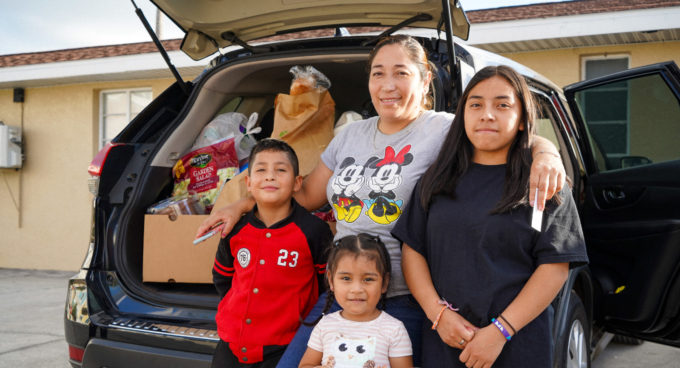Child nutrition waivers are critical to getting food to kids.
Throughout the COVID-19 pandemic, food banks across the Feeding America network have worked to fill in the gaps to ensure every child has a meal to eat. This is thanks in large part to Congress authorizing the U.S. Department of Agriculture (USDA) to issue pandemic-era nationwide waivers for Child Nutrition programs — such as summer and afterschool meal programs and school breakfast and lunch — to ensure schools and community providers can run meal programs that follow pandemic public health safety guidelines to feed kids.
Those child nutrition flexibilities were critical for my previous place of work, Second Harvest Food Bank of Central Florida. The food bank sponsors afterschool and summer meal programs.
Oftentimes, food banks are providing the only nutritious meal a child has in a day through Child Nutrition programs. That’s the case in Central Florida. Even then, food banks like Second Harvest Food Bank are only able to meet the needs of a certain percentage of kids in their communities — further underscoring the importance of child nutrition waivers that are currently on the brink of expiration.
When kids are left to go hungry, the consequences are high.
Currently, child nutrition flexibilities are set to lapse this summer, on June 30, placing meals kids could access this summer, during other out-of-school times, and during the next school year in jeopardy. Without governmental action, far too many kids will be deprived of the nutrition they need to learn, play, grow, and reach their full potential. This will be especially true for Black, Latino, and Native American children, who disproportionately lack access to healthy meals.
Amid supply chain issues, rising grocery prices, the cold winter months, the hot summer months ahead, and an ongoing pandemic, children don’t need another barrier to accessing meals.
If lawmakers let the waivers fizzle out, schools and community providers will also be left in limbo. Schools and community providers are currently preparing their summer meal programs and nutrition assistance for the next school year right now; with the future of the child nutrition waivers facing uncertainty, too many meal programs for kids may be forced to stop serving food or shut down completely.
For those in Feeding America’s network of 200 member food banks, the alarm is already ringing. For instance, Second Harvest of South Georgia has shared that if the waivers are not extended, it will have “a direct detrimental effect on the children of South Georgia.” In the rural parts of the food bank’s service area, permitting grab-and-go meals under the waivers has been described as a “game-changer,” and the food bank estimates a 40-50 percent drop in meals served if the waivers are not extended. Allowing a continuation of flexibilities will enable the food bank, and others, to continue safely meeting the need in new and innovative ways.




